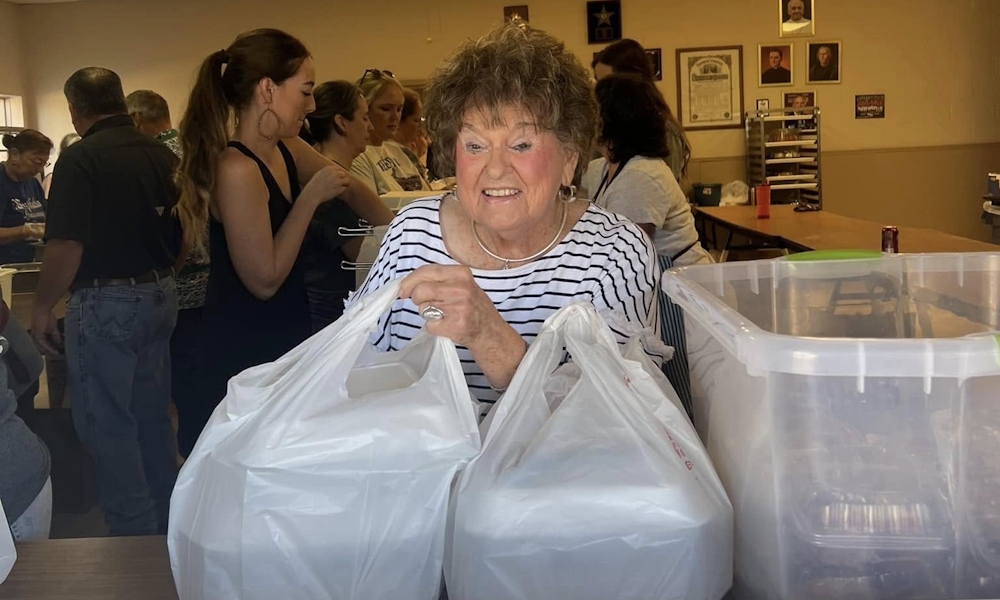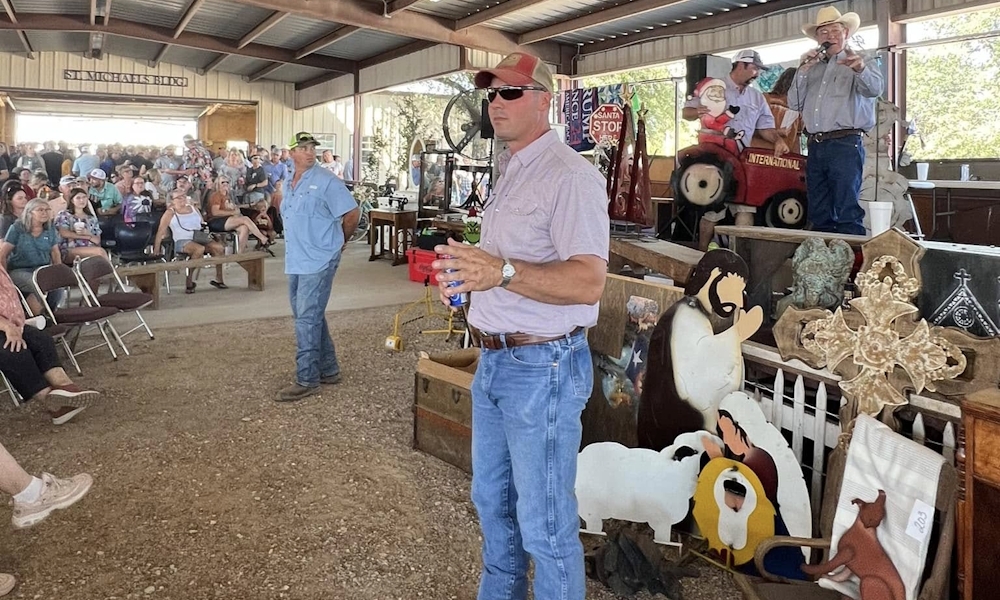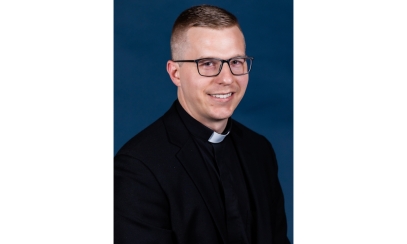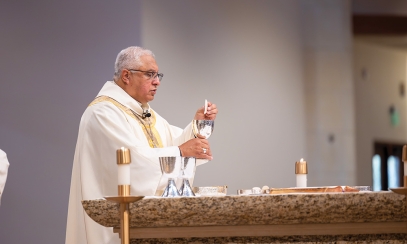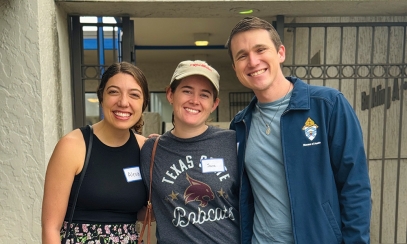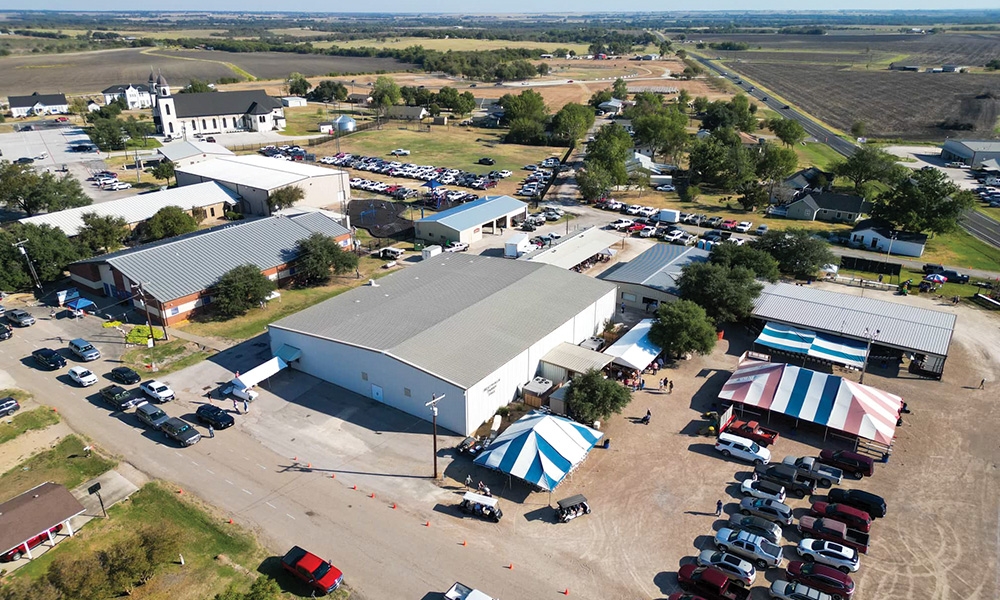
Many hands make light work as we prepare for the feast
The small German-Czech farming community of Westphalia, 19 miles east of Temple, is populated by hardworking rural folks who aren’t looking for publicity. Every October during their annual picnic and bazaar, the 170 or so families of Visitation Parish feed more than 6,000 visitors who flock from far and wide to graze on fried chicken, sausage and those famous “Westphalia noodles.”
The small German-Czech farming community of Westphalia, 19 miles east of Temple, is populated by hardworking rural folks who aren’t looking for publicity. Every October during their annual picnic and bazaar, the 170 or so families of Visitation Parish feed more than 6,000 visitors who flock from far and wide to graze on fried chicken, sausage and those famous “Westphalia noodles.”
Westphalia has no individual heroes on picnic day, only worker bees working for the good of the parish and the glory of God. Ticket sellers and money counters are merely the start. Cheerful servers dole out generous portions of delectables, pour coffee or tea, and proffer an array of desserts baked in advance. Children bus and clear tables to accommodate the constant flow of diners. Outside, scores of cooks deep-fry chicken and boil sausage. Teenagers work the game booths. Others direct parking and run the drive-through line.
Whenever I attend the Westphalia picnic, it brings to mind the feast given by newly crowned King David to celebrate the arrival of the Ark of the Covenant into Jerusalem. (1 Chr 16:1-3) After his enemies were defeated, David arranged to bring that sacred symbol of the Jewish faith safely into the capital city. Then, he blessed the people and distributed food to each person, “a loaf of bread, a piece of meat, and a raisin cake.”
Where did all that food come from? Who prepared it? How was King David able to feed the entire nation in a single day? A king’s feast for all Israelites must have required a legion of workers, much like the Westphalia picnic.
Bringing the meat from hoof to table would have been a gargantuan task because slaughtering, dressing, and quartering was a messy process. Meanwhile, roasting necessitated wood gatherers, fire-pit tenders and spit-turners. Cutting and serving were the glory jobs.
Same song, different verses for the bread and raisin cakes — cartloads upon cartloads of flour and jar after jar of oil kneaded into loaves by many hands. Baskets of sun-dried raisins heaped into the batter. Hundreds of ovens, stoked to just the right temperature. The aroma of baking bread commingled with the smell of roasting meat no doubt caused mouths to water all over Jerusalem. What a glorious scent!
When it comes to serving God, “many hands make light the work.” To accomplish that mission wholeheartedly, every worker must understand their role, no matter how menial or seemingly insignificant. Because there is only one true master — God himself — we are all servants. Jesus emphasized this point when addressing his apostles, “whoever wishes to be the first among you will be the slave of all.” (Mk 10:44)
How do contemporary Catholic Christians apply these lessons? Deacon Art Miller from the Archdiocese of Hartford, Connecticut put it very succinctly, “Be aligned with what you are assigned.” Identify your gifts or talents and put them to use! Almost every parish holds annual fundraisers or festivals like the Westphalia picnic. In addition, parish worship teams, religious education programs and service committees always need help. To answer the call is to do the Master’s bidding.
Perhaps selfless collaboration comes naturally to Westphalia’s picnic workers because farm life demands the same attitude. Their seamless orchestration is a thing of beauty to observe. They know that everyone matters in God’s kingdom, and even the humblest of workers gain paradise. Would that we all follow their example.
This year’s Westphalia Picnic is Oct. 12.
Louis A. Gamino is a clinical psychologist at Baylor Scott White Health and a member of St. Luke Parish in Temple. Find more about him at www.LouisGamino.com.

